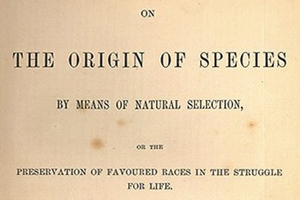 Words matter to scientists. The scientific method is a structure through which scientists test theories through experiment, and then share the results with other scientists.
Words matter to scientists. The scientific method is a structure through which scientists test theories through experiment, and then share the results with other scientists.
Do words matter? They matter to the world’s great religions. In the Book of Exodus in the Bible—sacred text for Jews, Muslim’s, and Christians—God speaks, and there is light. The Gospel of John begins with, In the beginning was the Word. The Buddhist Sutras lead followers to enlightenment. The epic poem Mahabharata is a central narrative for Hindus.
And words matter to scientists. The scientific method is a structure through which scientists test theories through experiment, and then share the results with other scientists. Science moves forward inch by inch with every paper printed in a journal or delivered at a conference.
Without words, we wouldn’t be human. Our great democracy is based on the power of words—the Declaration of Independence, the Bill of Rights, the Constitution. We are inspired by words—the Gettysburg Address, Shakespeare. Lucille Clifton, a poet that I got to know and love through the Squaw Valley Community of Writers, and who died recently at the age of 74, wrote short, simple, powerful poems that turned conventional interpretations of the Bible upside down. (In one poem she quotes from the Book of Samuel, David has slain his ten thousands—he was a mercenary before he was a king.)
A recent Supreme Court decision that gave corporations the same free speech rights as individuals has me worried. It equates money with words. Is one person’s ability to persuade another, or a nation, equal to a corporation’s ability to flood the media with sound bites that tend to distort the truth as much as enlighten us? (“Heresy” means emphasizing one aspect of the truth to the exclusion of all others; it doesn’t mean an out-and-out lie as many people think. Just as pornography is emphasizing one aspect of our humanity to the exclusion of others. Pornography sells.)
